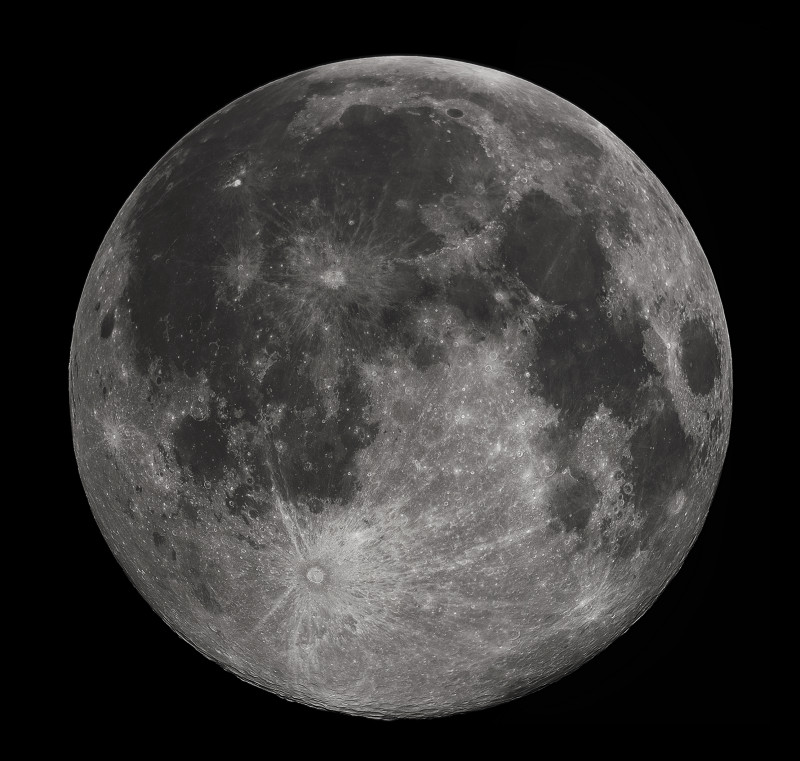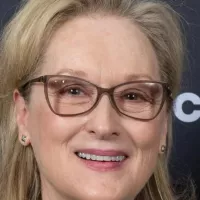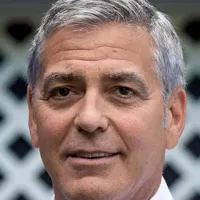The Masters Apprentices were an Australian rock band formed in 1964 in Adelaide, fronted by vocalist Jim Keays. They relocated to Melbourne in 1967 and later attempted to gain traction in the UK market before disbanding in 1972. Known for popular Australian singles like "Undecided", "Living in a Child's Dream", and "Turn Up Your Radio", the band also launched the career of bass guitarist Glenn Wheatley, who became a prominent music industry entrepreneur and talent manager for acts like Little River Band and John Farnham.
2 days ago : 2026 Masters Ticket Application Opens June 1st: Secure Your Spot Now!
The application process for tickets to the 2026 Masters Tournament at Augusta National Golf Club opens on June 1st. Golf enthusiasts can apply for a chance to witness the prestigious event.
1964: Beatles attendance record at Brisbane Festival Hall
In August 1969, The Brisbane Festival Hall concert broke The Beatles' 1964 attendance record.
February 1966: Establishment of the Go-Set Pop Poll
In February 1966, the Go-Set Pop Poll, coordinated by Go-Set newspaper, was established to conduct an annual poll of its readers to determine the most popular personalities.
February 1967: Relocation to Melbourne
In February 1967, The Masters Apprentices relocated to Melbourne from Adelaide, South Australia. They later attempted to enter the United Kingdom market in 1970 before disbanding in 1972.
May 1967: Release of "Buried and Dead" and First Sydney Trip
In May 1967, The Masters Apprentices released their second single, "Buried and Dead", and created a promotional film clip for TV, possibly one of Australia's first pop music videos. They also traveled to Sydney, appearing live on TCN-9's Saturday Date, where they were mobbed by fans.
June 1967: Release of Debut Album
In June 1967, Astor Records released The Masters Apprentices' self-titled debut LP, The Masters Apprentices, which featured earlier singles, original songs by Mick Bower, a cover of Bo Diddley's "Dancing Girl", and The Beatles' "I Feel Fine".
June 1967: Rick Morrison Quits
In June 1967, guitarist Rick Morrison had to quit due to a collapsed lung. Tony Summers replaced him. The band continued touring and playing shows, and in July, they were in the national finals of Hoadley's Battle of the Sounds, representing South Australia, but lost to The Groop.
August 1967: Release of "Living in a Child's Dream"
In August 1967, The Masters Apprentices released "Living in a Child's Dream", which is considered an early example of Australian psychedelic rock. It reached the Top Ten in most Australian capitals and was voted Australian Song of the Year by Go-Set readers.
September 1967: Mick Bower's Breakdown
In September 1967, while touring Tasmania, Mick Bower suffered a severe nervous breakdown due to the pressures of performing and was hospitalized. He was then ordered to give up performing.
October 1967: Hyde Park Riot and University Ball
On October 14, 1967, The Masters Apprentices played a free concert in Sydney's Hyde Park that turned into a riot. Later that evening, the band headlined the Living in a Child's Dream Ball, organized by University of NSW students.
1967: Originals and hits
In 1967, The Masters Apprentices became known for playing mainly originals, and one of their hits, "Undecided", was released.
January 1968: Band Reorganization
In January 1968, Jim Keays reorganized The Masters Apprentices. Tony Summers and Steve Hopgood departed, and Colin Burgess became the new drummer. Doug Ford joined as an electric guitarist. In March 1968, Gavin Webb married Suzette Belle, President of the Beatles Australian Fan Club.
February 1968: Release of "Elevator Driver"
In February 1968, The Masters Apprentices released "Elevator Driver", which was co-written by Brian Cadd and Max Ross, as their fourth single. Peter Tilbrook joined the band as lead guitarist, replacing Harrison.
March 1968: Gavin Webb's Marriage
In March 1968, Gavin Webb, a member of The Masters Apprentices, married Suzette Belle, the President of the Beatles Australian Fan Club.
April 1968: Gavin Webb forced to quit The Masters Apprentices
In April 1968, bassist Gavin Webb was forced to quit The Masters Apprentices due to stomach ulcers. Keays wanted Beeb Birtles of Zoot to replace him, but Birtles declined. Keays met Darryl Sambell, Johnny Farnham's manager, on a flight home, and Sambell became the band's manager.
June 1968: "Brigette" Released
In June 1968, The Masters Apprentices released "Brigette" marking the debut of the Ford/Keays writing partnership. This was their last recording for Astor and was inspired by Donovan's "Mellow Yellow."
July 1968: Go-Set Article: "Sex is thrust upon us"
In July 1968, Keays was interviewed by Go-Set, and the resulting article, headlined "Sex is thrust upon us", revealed aspects of the groupie scene.
August 1968: "But One Day" released
In August 1968, Astor released "But One Day", an old track from their debut LP, as a single. However, the band urged fans not to buy it, and it failed to chart.
December 1968: Tilbrook Leaves and Sitmar Cruise Opportunity Missed
In December 1968, Tilbrook left The Masters Apprentices, prompting Wheatley to switch to bass guitar. The band found out that they missed an opportunity to work on a London-bound Sitmar cruise liner because Sambell forgot to inform them.
1968: Go-Set Pop Poll and Hoadley's Battle of the Sounds
In 1968, The Masters Apprentices topped the Go-Set Pop Poll as 'Most Original Group' and came second to The Twilights as 'Most Popular Australian Group'. They entered the South Australian heats of the 1968 Hoadley's Battle of the Sounds, beating local rivals Zoot. They were runners-up in the national final held in Melbourne in July.
1968: Masterpiece LP Tracks Recorded
Since signing with EMI, The Masters Apprentices had been stockpiling tracks. A live recording provides a vivid aural snapshot of their live show during 1968, complete with the deafening screams of fans.
March 1969: "Linda Linda" / "Merry-Go-Round" Release
In March 1969, The Masters Apprentices released "Linda Linda" / "Merry-Go-Round", their first EMI single, marking the beginning of their collaboration with producer Howard Gable. Although only moderately successful, it helped revive their waning popularity.
July 1969: "5:10 Man" Released
In July 1969, The Masters Apprentices released "5:10 Man", which peaked at No. 16 on the Go-Set Singles Chart. This single was a move towards a heavier sound, as the band wanted to distance themselves from the bubblegum craze.
August 1969: Operation Starlift Tour
In August 1969, The Masters Apprentices participated in the Operation Starlift Tour. The Brisbane Festival Hall concert was a high point, breaking The Beatles' 1964 attendance record.
1969: First EMI Single Recorded
In early 1969, The Masters Apprentices' first single for EMI was released. Throughout 1969, The band played hundreds of concerts during the year, touring around country Australia, visiting interstate capitals and dashing between dance venues around greater Melbourne. They would typically play three shows a night on Fridays and Saturdays and often went to the Channel 0 TV studios on Saturday mornings for appearances on the leading pop show of the day, Uptight!.
1969: Hoadley's Battle of the Sounds Prize
Since receiving their prize in the Hoadley's Battle of the Sounds in mid-1969, The Masters Apprentices were set on breaking into the UK market.
1969: Wheatley Takes on Management Role
Throughout the closing months of 1969, Wheatley took on more management responsibilities, choosing venues, booking shows, and promoting the band. They ended the year with the single "Think About Tomorrow Today".
April 1970: "Turn Up Your Radio" Released
In April 1970, EMI released "Turn Up Your Radio", produced by Gable. Despite limited airplay due to a radio ban, the song reached No. 7 nationally.
May 1970: Departure for UK
On 25 May 1970, The Masters Apprentices boarded the Fairsky for the UK. They were given a send-off by fans and friends. The voyage allowed them to write and rehearse new material.
1970: Drum Booking Agency Established
Early in 1970, The Masters Apprentices parted with Sambell and established their own booking agency, Drum. Based in Drummond St Carlton, Drum began by handling the band's own management but within a few months it was also booking and promoting gigs for numerous other acts.
1970: Voted Top Group in Go-Set Pop Poll
In their absence the band had been voted top group in the 1970 Go-Set Pop Poll, and both their 1970 singles had been hits.
January 1971: National Tour Begins and Live Recording
The Masters Apprentices began their national tour in Perth in January 1971. Howard Gable recorded their first show, which became the live LP Nickelodeon.
February 1971: Release of "I'm Your Satisfier" in Australia
In February 1971, during a tour in Australia, The Masters Apprentices released the song "I'm Your Satisfier".
April 1971: Release of Choice Cuts and chart success
In April 1971, The Masters Apprentices released their album Choice Cuts in Australia. The album was met with widespread acclaim and reached number 11 on the Go-Set Top 20 Album Charts.
May 1971: Critical acclaim and European success for Choice Cuts
In May 1971, John Halsall informed The Masters Apprentices that Choice Cuts was receiving positive reviews in the English music press, including a review in Melody Maker. The album was selling well in the UK, and "I'm Your Satisfier" reached the Top 10 in France. Halsall urged the band to return to London to record a new album.
June 1971: Two Tracks Released as Singles
In June 1971, two tracks from Nickelodeon were released as singles.
September 1971: Recording at Abbey Road Studios
In September 1971, The Masters Apprentices reunited with Jarratt and Brown, along with engineer Richard Lush, at Abbey Road Studios. They recorded most of their new album in Studio Two, while John Lennon recorded his John Lennon/Plastic Ono Band album in Studio One.
1971: Return to Australia
By 1971, the band and the music scene had changed, and they initially struggled to regain their previous popularity upon returning to Australia. A gig at Chequers in Sydney helped them regain momentum.
January 1972: EMI released A Toast to Panama Red
In January 1972, EMI released The Masters Apprentices album A Toast to Panama Red.
1972: Band Breakup and Final Recording
In 1972, following disagreements within the band, Wheatley left to focus on management, and Keays announced his departure. Ford and Burgess continued with Denny Burgess on bass. The final trio recorded "Freedom Seekers" before splitting up in mid-1972.
March 1973: Keays in The Who's Tommy
In March 1973, Jim Keays played the role of 'The Lover' in the Australian production of The Who's rock opera, Tommy.
August 1974: Release of "Rio de Camero" / "Thyme to Rhyme" as a single
In August 1974, EMI released "Rio de Camero" / "Thyme to Rhyme" as a single. While the A-side received airplay, it did not make it onto the charts.
1974: Wheatley begins career in management
In 1974, Glenn Wheatley moved into a career in management after leaving The Masters Apprentices, using what he had learned with the band to manage other bands.
January 1975: Premiere of Boy from the Stars at Sunbury Pop Festival
In January 1975, Jim Keays premiered his concept LP, Boy from the Stars, at the Sunbury Pop Festival. Wheatley, who had recently returned from the UK, joined Keays' all-star backing group for what would be their final performance together in over a decade.
1975: Music Video in Color
The music video for "Because I Love You" was shot in color, although black-and-white prints were shown on Australian TV until 1975, when color television was introduced.
1976: Wheatley manages Little River Band
In 1976, Glenn Wheatley guided Little River Band towards their American commercial breakthrough.
1977: Wheatley manages Little River Band
In 1977, Glenn Wheatley guided Little River Band towards their American commercial breakthrough.
1980: Wheatley manages John Farnham
From 1980, Glenn Wheatley also began managing John Farnham, overseeing his career revival.
1981: Release of Hands of Time compilation LP
In 1981, Raven Records released a compilation LP called Hands of Time, due to revived interest in The Masters Apprentices led by rock historian Glenn A. Baker.
1986: Wheatley finances Whispering Jack album
In 1986, Glenn Wheatley mortgaged his house to finance John Farnham's successful solo album, Whispering Jack. The album became the biggest-selling locally produced album in Australian recording history.
August 1987: Reunion on Hey Hey It's Saturday
In August 1987, the classic line-up of Burgess, Ford, Keays and Wheatley reunited for a "Back to the 1960s" special on the TV show Hey Hey It's Saturday. It was the first time all four had played together since 1971.
1987: Brief Reformation
In 1987, The Masters Apprentices briefly reformed. They had continued under various lineups from 1965 until 1972, reforming briefly in 1987 and on several subsequent occasions.
1988: Reunion Tour and Album Release
In 1988, The Masters Apprentices undertook a reunion tour and released an album, Do What You Wanna Do, which featured new material and new versions of their earlier songs. The revamped version of "Because I Love You" gained prominence through its use in a series of jeans advertisements.
September 1995: Release of "Turn Up Your Radio" with Hoodoo Gurus
In September 1995, The Masters Apprentices released a new version of "Turn Up Your Radio" with Hoodoo Gurus.
1997: "Undecided" revival by Silverchair
In 1997, The Masters Apprentices hit song "Undecided" was revived by Silverchair.
November 1998: Burgess brothers' car accident
In November 1998, Colin and Denny Burgess were severely injured after their car was hit by a semi-trailer. Both suffered serious injuries but eventually recovered.
1998: Induction into the ARIA Hall of Fame and Australia Post Commemoration
In 1998, The Masters Apprentices were inducted into the ARIA Hall of Fame and honored with a commemorative stamp in Australia Post's "Rock & Roll" series, celebrating "Turn Up Your Radio".
1998: Induction into the Hall of Fame
In 1998, The Masters Apprentices were inducted into the ARIA Hall of Fame.
1999: Keays' Memoirs Launch and Album Re-releases
In 1999, Ford, Keays, and Wheatley reunited to perform 'unplugged' at the launch of Keays' memoirs, His Master's Voice. Wheatley's memoirs were also released, and all of The Masters Apprentices' original albums were re-released and remastered on CD at the same time.
June 2000: ABC-TV screens Turn Up Your Video documentary
In June 2000, ABC-TV aired an edited version of the documentary Turn Up Your Video, and the full-length home video was released.
2000: Keays tours with Cotton & Morris
From 2000, Jim Keays toured as a member of Cotton Keays & Morris, alongside Darryl Cotton from Zoot and Russell Morris from Somebody's Image.
March 2001: Reunion at Gimme Ted Benefit Concert
On March 9, 2001, The Masters Apprentices reunited for the Gimme Ted benefit concert.
August 2001: Keays featured on ABC-TV series Long Way to the Top
In August 2001, Jim Keays featured on "Episode 2: Ten Pound Rocker 1963–1968" and "Episode 3:Billy Killed the Fish 1968–1973" of the ABC-TV series Long Way to the Top, discussing the band's influences and experiences.
September 2002: Long Way to the Top National Concert Tour
In August and September 2002, The Masters Apprentices participated in the Long Way to the Top national concert tour, featuring Australian acts from the 1950s, 1960s, and 1970s.
2002: Opeth names a song in honor of the band
In 2002, Swedish progressive metal band Opeth named the track "Master's Apprentices" from their album Deliverance in honor of the band.
October 2005: Benefit Concert in Melbourne
In October 2005, The Masters Apprentices performed at a benefit concert in Melbourne for former Rose Tattoo guitarist Lobby Loyde.
October 2010: Master's Apprentices listed in 100 Best Australian Albums
In October 2010, The Masters Apprentices' 1967 debut album, Master's Apprentices, was listed in the top 40 in the book 100 Best Australian Albums.
June 2014: Death of Jim Keays
Jim Keays, lead singer of The Masters Apprentices, died on June 13, 2014, from pneumonia related to multiple myeloma.
2014: Induction into South Australian Music Hall of Fame
In 2014, The Masters Apprentices were inducted into the South Australian Music Hall of Fame, and the original Mustangs members reformed as The 1965 Masters Apprentices.
2020: Band continues in original format
As of 2020, The Masters Apprentices continued with original members Mick Bower, Brian Vaughton, Gavin Webb, and Rick Harrison, along with bassist Bill Harrod and lead singer Craig Holden.
April 2024: Death of Gavin Webb
On April 16, 2024, Gavin Webb, bassist and founding member of The Masters Apprentices, died after a battle with cancer.
Mentioned in this timeline

John Lennon was a highly influential English singer songwriter musician...

Doug Ford is a Canadian politician and businessman currently serving...
Australia officially the Commonwealth of Australia encompasses the Australian mainland...
France officially the French Republic is a country primarily in...

Books are a means of storing information as text or...

A car or automobile is a wheeled motor vehicle designed...
Trending

12 minutes ago June 2025 Sky: Strawberry Moon, Arietid Meteor Shower, and Moonwatching Tips from NASA.

12 minutes ago Meryl Streep returns to 'Only Murders', recreates 'Devil Wears Prada' with Selena Gomez.

12 minutes ago Gukesh Dommaraju defeats Magnus Carlsen; Indian GM wins, Carlsen expresses frustration.

12 minutes ago Mark Vientos Injured, Hamstring Issue, Mets Win Against Dodgers in 10 Innings
13 minutes ago LG Twins: Youm Returns, Jang Nears Comeback, Yoo Impresses After Surgery

13 minutes ago Amal Clooney stuns in strapless dresses during date nights with George Clooney.
Popular

Cristiano Ronaldo often called CR is a Portuguese professional footballer...

Donald John Trump is an American politician media personality and...

Michael Jordan also known as MJ is an American businessman...

LeBron James nicknamed King James is a professional basketball player...

Lionel Messi is an Argentine professional footballer widely considered one...

Elon Musk is a prominent businessman best known for leading...